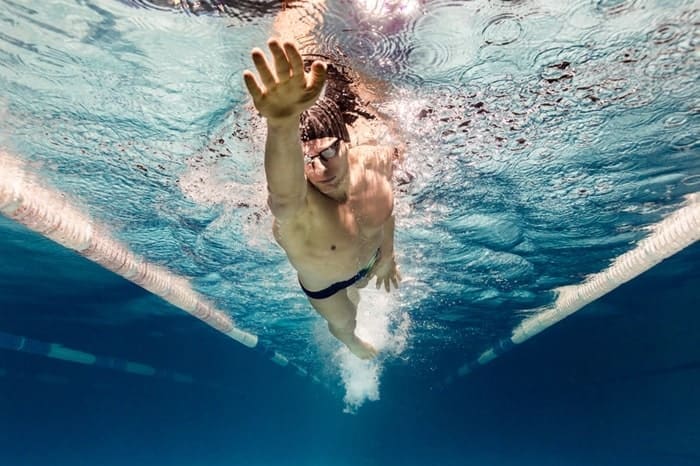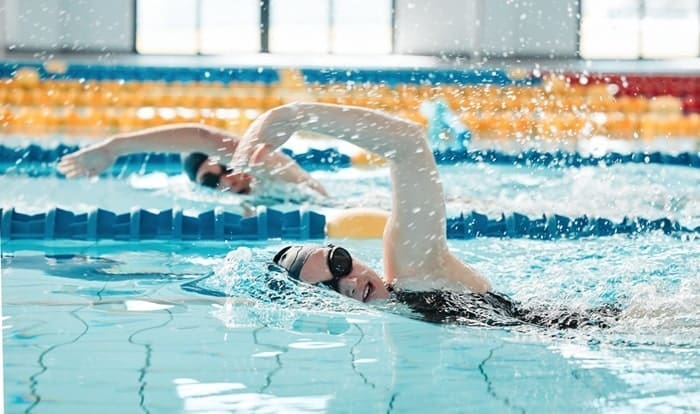As a swimmer, maintaining a healthy lifestyle is crucial not only for performance but also for overall well-being. Your body is your most valuable asset in the water, and nurturing it through proper nutrition, exercise, recovery, and mental wellness is essential. Here are the key components of a swimmer’s healthy lifestyle routine, helping you optimize your performance and enhance your enjoyment of the sport.
Exercise and Training
Consistent training is the backbone of every successful swimmer’s routine. Structured swim workouts tailored to your skill level and goals are essential for improving technique, building endurance, and increasing speed. Include a variety of strokes and drills in your training regimen, about which you can consult with Chicago Athletic Clubs trainers, to target different muscle groups and prevent monotony. In addition to swimming, cross-training activities such as strength training, yoga, and Pilates can enhance overall fitness, improve flexibility, and reduce the risk of injury. Remember to listen to your body and incorporate rest days into your schedule to allow for recovery and prevent overtraining.
Nutrition
Nutrition serves as the fuel for your body, powering you through rigorous training sessions and competitions. For swimmers, a balanced diet rich in carbohydrates, protein, healthy fats, vitamins, and minerals is paramount. Carbohydrates provide the energy needed for endurance, while protein supports muscle repair and growth. Incorporate whole grains, lean proteins, fruits, vegetables, and healthy fats into your meals to ensure you’re getting the nutrients your body requires. Proper hydration is also vital, so drink plenty of water throughout the day, especially before and after swimming.
- Pre-workout Fuel: Consume a balanced meal or snack containing carbohydrates and a moderate amount of protein about 1-2 hours before swimming. This provides your body with readily available energy to sustain you through your workout.
- During Training Hydration: Stay hydrated during training sessions by sipping water or a sports drink regularly. Dehydration can impair performance and lead to fatigue, so aim to drink fluids even if you don’t feel thirsty.
- Post-workout Recovery: Optimize muscle recovery and glycogen replenishment by consuming a meal or snack rich in carbohydrates and protein within 30 minutes to an hour after swimming. This helps repair muscle tissue and refuel energy stores for your next session.
Recovery
Recovery is often overlooked but is just as important as training itself. Your body repairs and strengthens during rest periods, so prioritize adequate sleep and relaxation. Aim for 7-9 hours of quality sleep each night to support physical and mental recovery. Incorporate post-workout stretching, foam rolling, and massage to alleviate muscle tension and prevent tightness. Nutrition plays a crucial role in recovery as well, so refuel with a balanced meal or snack containing carbohydrates and protein within 30 minutes to an hour after training. Hydrate adequately to replenish fluids lost through sweat during exercise.
- Sleep Hygiene: Create a sleep-friendly environment by maintaining a consistent sleep schedule, minimizing exposure to screens before bedtime, and ensuring your bedroom is dark, quiet, and comfortable. Quality sleep is essential for muscle repair, hormone regulation, and cognitive function.
- Nutrient Timing: Capitalize on the post-exercise “window of opportunity” by consuming a combination of carbohydrates and protein soon after training. This maximizes nutrient absorption and facilitates muscle repair and glycogen replenishment.
- Active Recovery Techniques: Incorporate low-impact activities such as swimming, cycling, or walking on rest days to promote circulation, reduce muscle soreness, and enhance recovery without overtaxing your body.
Mental Wellness
A swimmer’s mental state significantly impacts performance and overall well-being. Practice mindfulness techniques such as deep breathing, visualization, and positive self-talk to manage pre-race nerves and enhance focus during training and competition. Set realistic goals and celebrate achievements, no matter how small, to stay motivated and maintain a positive mindset. Surround yourself with a supportive network of coaches, teammates, and friends who encourage and inspire you to reach your full potential. Remember to prioritize self-care and balance swimming with other interests and activities to prevent burnout and maintain a healthy perspective.
- Visualization: Practice mental rehearsal by vividly imagining successful race scenarios, including sights, sounds, and sensations. This technique enhances confidence, reduces anxiety, and helps reinforce positive habits and strategies.
- Goal Setting: Set SMART (Specific, Measurable, Achievable, Relevant, Time-bound) goals that are challenging yet realistic. Break larger goals into smaller, manageable milestones to track progress and maintain motivation throughout the season.

Incorporating these vital components into your lifestyle routine will not only optimize your performance in the pool but also promote overall health and well-being. By nourishing your body with proper nutrition, engaging in consistent and varied training, prioritizing recovery, and nurturing your mental wellness, you’ll become a stronger, happier, and more successful swimmer. Embrace the journey, enjoy the process, and remember that your health is your greatest asset both in and out of the water.


